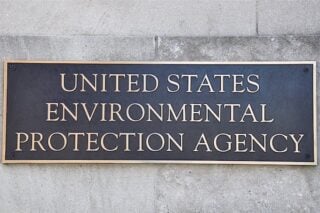Asbestos concerns caused the Senate press gallery and nearby rooms in the U.S. Capitol to be cleared earlier this month, but tests have declared the air safe now.
“Workers had discovered a broken air duct above the press gallery on the Capitol’s third floor,” said officials from the Architect of the Capitol’s office. This caused a “potential release” during the asbestos abatement work.
The air was shut off, the duct was repaired, and an independent, certified industrial hygienist was hired to collect and analyze air samples. Officials do not know exactly when the duct broke. Apparently the Senate chamber was not affected.
Coincidentally, the Asbestos Disease Awareness Organization (ADAO) is currently preparing for the 10th Congressional Staff Luncheon Briefing for the Senate —“TSCA Implementation: Prioritizing Asbestos to Protect Public Health and the Environment.”
The briefing will take place on September 13 and discuss the Frank Lautenberg Chemical Safety for the 21st Century Act and how the EPA should have asbestos on its ten high-risk chemicals for prioritization list when it’s released in the next few months.
Some of the speakers include Linda Reinstein, Asbestos Disease Awareness Organization President/CEO/Co-Founder; Daniel Rosenberg, National Resources Defense Council; Mike Mattmuller, Mesothelioma Patient; Brent Kynoch, Executive Director, Environmental Information Association (EIA); Andy Igrejas, Safer Chemicals, Healthy Families (SCHF); Matt Catlin, American Public Health Association (APHA); and Barry Castleman, ScD.
Asbestos is still not banned in the U.S., but a number of laws, in addition to the recently passed Frank Lautenberg Chemical Safety for the 21st Century Act, exist on the federal and state levels. They determine how companies can manufacture, use, and dispose of asbestos.
These laws and regulations are in place to protect everyone from the deadly effects of asbestos exposure, including mesothelioma cancer. Mesothelioma is a rare, aggressive form of cancer that develops in the lining of the lungs, abdomen, or heart. It has no known cure and a very poor prognosis.
When diagnosed with mesothelioma, the outcome is usually very poor as it’s typically discovered at a late stage of development. But there’s still hope for survival. For example, Heather Von St. James is a 10-year mesothelioma survivor who became an advocate for banning asbestos.





